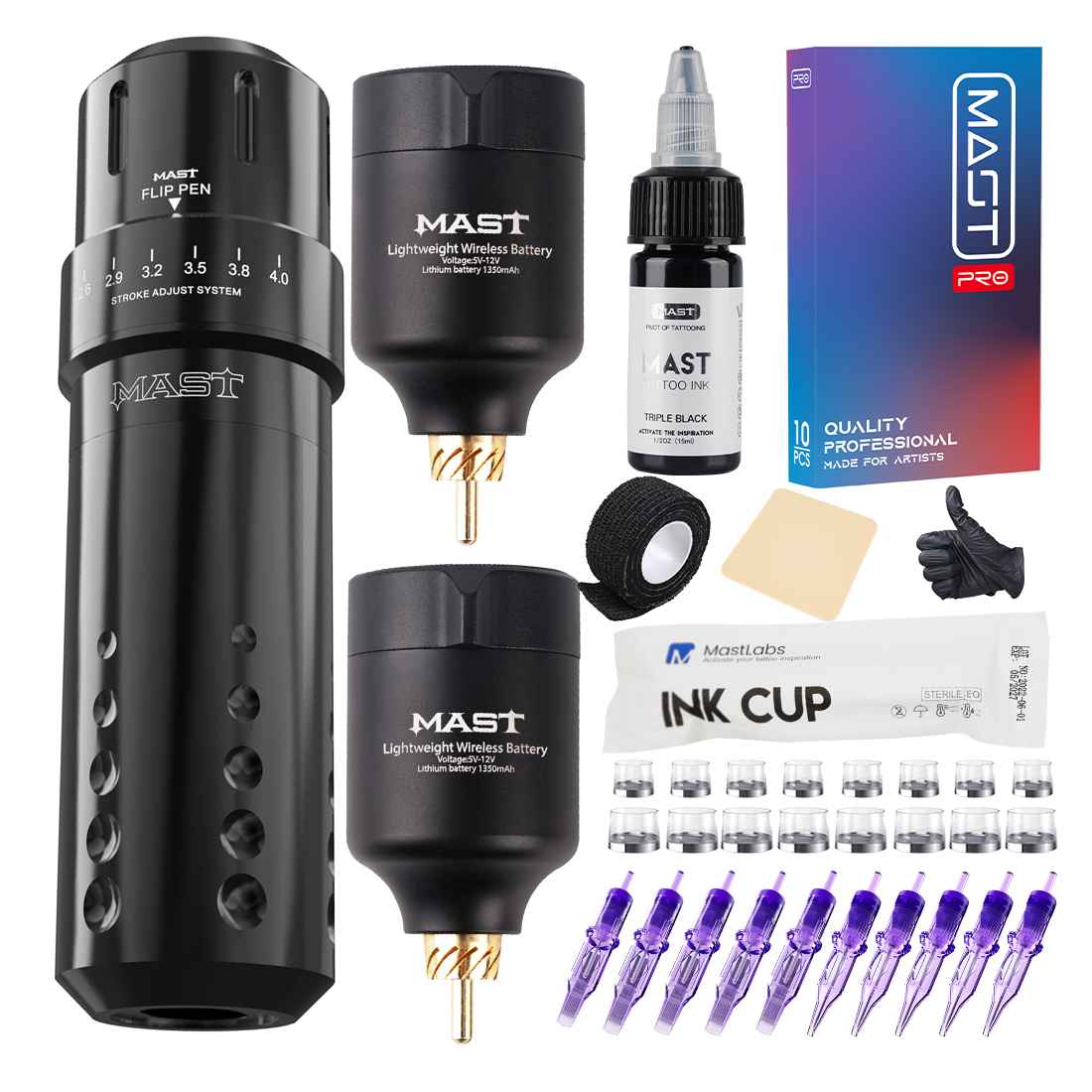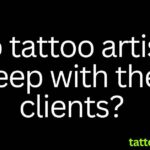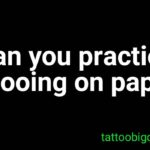Picture this – you walk into a tattoo studio, filled with excitement and a touch of nervous energy. But instead of a warm welcome, you’re met with what seems like a wall of stoicism.
Ever being dazed by the question, “Why are tattoo artists rude?” “Why do tattoo artists come across as a bit rough around the edges?”
If you have, then; dive into the fascinating world of ink as we unravel the intriguing reasons behind the seemingly tough exterior of tattoo artists.
Brace yourself for a journey that reveals not just the artistry in their hands, but the method in their mannerisms.
Why Are Tattoo Artists So Rude
Getting a tattoo is an exciting and meaningful experience for many people.
However, some customers report feeling like their tattoo artist had a rude attitude during the process. There are several reasons why tattoo artists may come across as impolite or curt:
1. They are focused on their work
Tattooing requires intense concentration and focus. Tattoo artists need to closely monitor line work, shading, color packing, and other technical elements.
This level of focus means they have less attention left over for small talk or chitchat during the tattoo. Artists are not being intentionally rude – they are just deeply focused on their craft.
Also Read: Why Do Tattoo Artists Wear Black Gloves: [9 Secrets of Tattoo Perfection]
2. The work is taxing
Tattooing is physically and mentally draining work. Artists are on their feet for hours, hunched over, making precise and repetitive motions.
This can take a toll and leave artists feeling fatigued or strained. Additionally, the work requires constant creativity, problem solving, and technical skill.
After several hours of tattooing, it’s understandable if an artist seems terse or distant. It’s not personal, they are just tapped out.
3. Artists value perfectionism
Reputable tattoo artists take great pride in the quality of their work. They spend years perfecting their technique and style.
Artists want each new tattoo to showcase their talents and live up to their personal standards. If the tattoo requires a lot of corrections or touch-ups, the artist may get short tempered about having to re-do sections.
It’s not the customer’s fault, but the artist’s frustration with their own imperfections coming through.
4. Unrealistic customer expectations
Some customers come in with unrealistic expectations about tattoos. They may request very complex designs but give the artist little time to complete the work.
Customers might demand a discount or special treatment. They may insist on certain colors, sizes, or placements that don’t work well.
When customers make unreasonable demands, it can provoke terse reactions from artists. But in most cases, the artists will still try to give the customer a quality tattoo.
5. Health risks
Tattooing carries inherent health risks if proper sterilization and safety protocols aren’t followed. Reputable artists take these risks very seriously.
They will be strict about following safety measures like using new needles, gloves, and ink cups for each tattoo.
If customers question the precautions or attempt to shortcut the safety steps, artists may get snappy. Their curt reaction is to enforce important health and sterilization guidelines.
Also Read: Why Don’t Tattoo Artists Use Numbing Creams [9 Strong Reasons + Safer Alternatives]
6. Unconventional personalities
The tattoo industry attracts free-spirited types who don’t always fit the corporate mold. Artists value self-expression and creativity over conformity.
Their eccentric or aloof personalities shouldn’t be misinterpreted as rudeness. Most artists mean no offense – they are just being their quirky, artistic selves. Their bluntness or indifference usually isn’t intended as disrespect.
7. Language and cultural barriers
In a cosmopolitan tattoo shop, artists and customers may come from vastly different backgrounds.
This can lead to language issues or cultural misunderstandings that result in perceived rudeness. An artist might sound curt when answering questions because English isn’t their first language.
Or their body language and mannerisms may seem offputting to customers from different cultural contexts. Any rudeness is unintentional and stems from communication gaps.
Also Read: Why Do They Ask If You Have Tattoos Before Surgery?
8. Stereotypes about the industry
There is still a stigma associated with tattoos and the tattoo industry in some segments of society.
Artists are aware of the negative stereotypes people may hold about their career choice and tattooed appearance.
Their standoffish attitude can be a self-protective measure against anticipated judgment or scorn. Underneath the tough exterior is an artist who is guarding themselves.
Tips for Working With a Rude Tattoo Artist
If you find yourself working with a rude or abrupt tattoo artist, don’t despair. There are strategies that can help smooth out the experience:
1. Research artist personalities
Read reviews and talk to prior clients to get insight into how different artists interact with customers. Learn their communication style and see if they might be a good personality fit.
2. Clarify expectations beforehand
Before the appointment, confirm the design, pricing, timeframe, and aftercare. This reduces chances of disappointment or confusion later.
3. Come open-minded
Don’t take curt responses personally. Enter the situation with an open mind and grace. Artist rudeness often arises unintentionally.
4. Stay calm and patient
Artists are under a lot of pressure during tattoo sessions. If they seem snippy, take a deep breath and stay patient. Bringing more negative energy into the dynamic won’t help.
5. Give space when needed
Don’t pepper the artist with questions or demands during the tattoo. Let them work with minimal distractions or interruptions.
6. Provide tips and feedback
Most artists appreciate tips and positive feedback when deserved. This shows you respect their time and skill.
7. Address major issues respectfully
If an artist crosses a line with inappropriate or abusive behavior, you should address it clearly but civilly. Explain why the behavior was unacceptable.
Also Read: Can a Veterinarian Have Tattoos? Here’s the Honest Truth
How Tattoo Artists Can Improve Their Bedside Manner
While some customer expectations may be unrealistic, there are still steps artists can take to improve client interactions:
1. Cultivate listening skills
Practice active listening when consulting with clients. Make them feel heard and understood, even if you can’t fulfill their exact vision.
2. Explain challenges tactfully
If a request isn’t feasible, explain the reasons clearly while still respecting the client. Find potential compromises.
3. Adjust approach for different clients
Certain customers need more guidance or reassurance. Adapt your mannerisms and language accordingly.
4. Check in about pain/comfort
Asking clients if they need breaks or water shows you care about their physical comfort.
5. Admit mistakes
If you make an error, apologize directly to the client. Don’t get angry or defensive.
6. Share your knowledge
Educate clients on tattoo best practices and aftercare. Don’t assume they have any background knowledge.
7. Cultivate patience and focus
Practice staying cool under stress. Don’t let impatience or perfectionism affect client interactions.
8. Get sufficient rest
Make sure you are eating well and getting sleep so you don’t feel depleted. Fatigue breeds impatience.
Conclusion
You may find yourself asking the question, “Why are tattoo artists rude?”, or being irritated by a tattoo artist’s attitude. When this happens,take a step back ad observe the whole situation.
At the end of the day, tattoos create a very personal connection between artist and client.
The artist permanently marks the customer’s body while the client permanently displays the artist’s work.
Rudeness damages the collaborative spirit needed for this partnership. Artists should reflect on how they can better set clients at ease.
Clients must also enter the process with grace and open-mindedness. With mutual understanding, even difficult tattoo experiences can be transformed into positive bonding moments.
FAQs About Rude Tattoo Artists
Why are some tattoo artists so arrogant?
Tattoo artists develop “swagger” partly due to the nature of the job. They take immense pride in their unique skills. Some interpret intense confidence as arrogance.
And in a small subset of artists, exaggerated self-importance does turn into ego and arrogance. However, most artists are dedicated craftsmen who humbly work to grow their talents.
Do tattoo artists look down on simple or small tattoos?
Usually not, though some artists prefer the creative challenge of larger, custom pieces. The best artists can create incredible work at any scale. Small or pre-designed tattoos are often requested. As professionals, artists may have opinions, but they ultimately give each client a quality experience.
Should I call out a rude tattoo artist on bad behavior?
Pointing out disrespectful behavior is warranted in some cases. However, it’s best to do so politely in private after the appointment. Publicly confronting the artist will likely escalate tensions. If needed, speak to the shop owner about the artist’s poor conduct with customers.
How do I know if artist impatience is my fault?
You can tell if an artist’s impatience stems from you if they seem frustrated with your indecision, questions, or requests for breaks. Be mindful not to disrupt their workflow. But irritation over reasonable client needs indicates poor professionalism.
What should I do if my tattoo artist is flirting with or touching me inappropriately?
You have every right to demand inappropriate flirting or physical contact stop immediately. Report the artist’s misconduct to the owner. Leave and consider consulting police if the artist’s behavior was criminal. No one should feel compelled to endure harassment or abuse.






